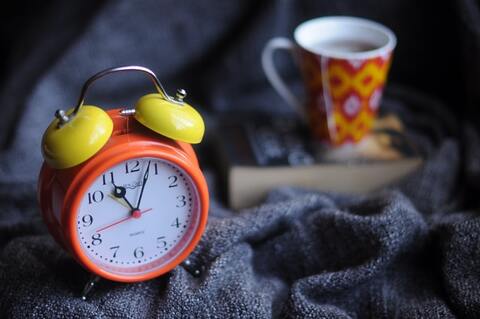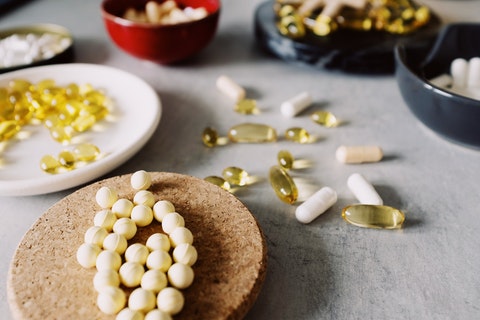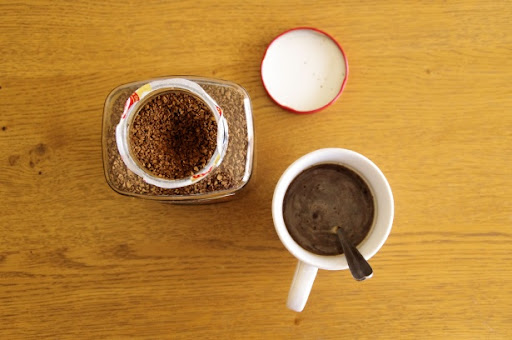As an Amazon Associate I earn from qualifying purchases. When you use our links, we may earn an affiliate commission. Learn more.
Americans drink over 400 million cups of coffee every day! Over 50% of adults in the US are coffee lovers and, on average, drink 3 cups daily.
I typically drink 2 or 3 cups of coffee daily; however, I have a friend who frequently drinks 6 cups of coffee each day and still complains that she doesn’t feel any caffeine hit. So when she asked me, “why doesn’t caffeine affect me?” I promised to do some research and provide all the answers, which I want to share with you today too.

Experts agree the most common reason why caffeine doesn’t affect you is genetic. If you consume caffeine regularly and don’t feel much effect, your adenosine receptors may not be “sticky” so caffeinated drinks provide a minimal energy boost.
There may be other reasons why your caffeine tolerance is higher than most. These include genetics, caffeine tolerance, any medications you may be taking, sleep deprivation, and caffeine intake.
Before deep-diving into the world of caffeine, it’s worth highlighting that a cup of coffee isn’t the only source of caffeine. Energy drinks, black tea, chocolate, and carbonated beverages are other products containing caffeine.
7 Reasons Why Caffeine Doesn’t Affect You
1. You Don’t Drink Enough Coffee.
Similar to the effects of alcohol, the amount of caffeine you can handle is dependent on a range of factors, including age, weight, and height.
Assuming you have a standard sensitivity to caffeine (more on that later), experts agree that you can safely consume 2.7 mg of caffeine per lb daily (6 mg of caffeine per kg).

For example:
- If you weigh 100 lbs (45 kg), you can safely consume 100 x 2.7 = 270 mg of caffeine per day, equivalent to the caffeine in 2 medium iced coffees from Mcdonald’s.
- If you weigh 150 lbs (68 kg), your daily safe limit increases to 150 x 2.7 = 405 mg, or approximately 5 espresso shots which, according to the FDA, is the maximum recommended daily caffeine intake.
Clearly, the effects of caffeine will vary from person to person, and your caffeine tolerance may be quite different from friends or colleagues with whom you are drinking coffee, so it’s essential to be careful when comparing how caffeine affects you with others.
2. You Add Too Much Sugar When You Drink Coffee.
According to research conducted by Yale Scientific, adding sugar to your coffee increases the concentration of single caffeine modules and the water concentration and solubility.
Adding too much sugar when you drink coffee will delay the caffeine hit because your body will have to break down the sugar first before absorbing it.
The added sugar does not reduce the amount of caffeine you consume in your cup of coffee. Instead, it reduces the effectiveness of caffeine.

Suppose you have overeaten candy or consumed energy drinks containing high sugar levels. In that case, you can experience a sugar hit followed by a crash in energy which can create confusion over whether you are experiencing effects from the caffeine or sugar.
Lastly, depending on how much sugar you like in your coffee and how much coffee you drink every day, the amount of sugar consumed could be significant, with potential health issues, particularly if you have diabetes or high blood pressure.
3. Not Enough Sleep
Studies show that consuming 400 mg of caffeine up to 6 hours before bedtime can significantly disrupt your quality of sleep. If this sleep deprivation cycle continues over a prolonged period, it can affect your daytime function.

Sleep debt is how much sleep a person owes to their body every night. This is assessed against the amount of sleep you require every night. If you have excessive sleep debt, caffeine can’t help you stay awake. In fact, researchers found that caffeine did not enhance synapse-induced alertness. Everything will suffer as soon as sleep deprivation hits.
Do not drink coffee if your body and mind are exhausted!
4. You Drink Too Much Caffeine.
If you are a heavy coffee drinker and no longer experience the effects of caffeine, you have probably increased your caffeine tolerance. Your body has adapted to consuming too much caffeine, become immune, and the stimulants have stopped functioning.

In this case, I recommend reducing your intake for a few weeks by consuming no more than 100 mg of caffeine daily. This will give your body a chance to reset its caffeine sensitivity levels.
Be aware that a potential side effect of reducing your caffeine intake may be withdrawal symptoms such as headaches, fatigue, low energy, and irritability. These withdrawal symptoms can last for up to one week.
5. You Take Supplements That Contain Caffeine.
Caffeine supplements contain up to 200 to 250mg of caffeine. Your brain will detect caffeine when you take supplements, and subsequently, the effects of drinking coffee will take longer.

When we take supplements with caffeine, we increase our caffeine tolerance. This supplement differs from the natural form, but the after-effects and tolerance remain similar. It is best to consume coffee instead of a supplement and not take both. Find some equilibrium.
6. Your Specific Genetics
Genetics plays a vital role in caffeine metabolism and your reaction to caffeine. The CYP1A2 enzyme in your liver is responsible for up to 90 percent of the entire caffeine metabolism process by breaking down the caffeine in the body.
Any variation in the gene responsible for this caffeine synthesis will notably affect how your body reacts to caffeine.
The other area where genetics plays an essential role is your adenosine receptors, which are receptors to which caffeine binds.
Depending on your genes, the caffeine may or may not bind well to your receptors. If you consume caffeine regularly and don’t feel much effect, your receptors are possibly not “sticky,” and caffeinated drinks provide a minimal energy boost.
7. Your Circadian Rhythm
Do you often feel sluggish after a day at work? This could be due to your circadian rhythm, your internal body clock that runs on a 24-hour schedule and tells you if you should be awake or asleep.
It’s natural, therefore, that you experience an energy dip during the day, which for most people occurs in the afternoon.
This energy drop will be much more substantial unless you have a sleep debt. But even though you don’t sleep, your biological system’s sensation is still natural. Obviously, if you feel that drinking coffee doesn’t help you, it might just be due to your circadian rhythm.
What is Caffeine?
Caffeine is a stimulant that naturally occurs in coffee, tea, and cacao plants. Legend has it that the coffee beans were first discovered in Ethiopia by Kaldi, a goat herder who noticed an increase in his herd’s energy levels after consuming the coffee beans.
After you have consumed caffeine, your digestive system and stomach will absorb it in a short amount of time. Once it has been absorbed into your gut, the caffeine travels to your liver and is broken down into compounds that may affect the function of various organs.
The main effect of caffeine is on the brain, where it fights adenosine molecules by binding to the receptors. This essentially blocks the effects of adenosine on the body, a neurotransmitter that makes you feel tired and relaxes the brain.
How Does Your Body Metabolize Caffeine?
After you consume caffeine, it is broken down into glucose and metabolized by the CPY1A2 enzyme in the liver into three major metabolites: theophylline (4%), theobromine (12%), and paraxanthine (84%). Any remaining caffeine is excreted by the kidneys into the urine.
Effects Of Caffeine On The Mental Health
As previously mentioned, coffee and caffeine can positively affect mental wellbeing. These benefits are probably because of their anti-inflammatory and antibacterial properties. Caffeine inhibits receptors causing fatigue and depression.
Excessive caffeine consumption can result in some unpleasant side effects, including:
- Anxiety
- Withdrawal symptoms
- Lack of sleep
- Gastric
This free cheat sheet will improve your coffee brew by providing quick information on brew ratio, grind size, optimal brewing time, and more.
People Also Ask
Can you be immune to caffeine effects?

Suppose you are a coffee lover who regularly consumes caffeine over a prolonged period. In that case, it is likely that you will experience reduced stimulatory effects and may become immune to the effects of caffeine.
There may be other reasons why caffeine doesn’t work, including genetics, your caffeine metabolism, lack of sleep, and whether you add sugar to your cup of coffee.
Why does caffeine not make me feel awake?

Caffeine affects everybody differently, depending on your genetic composition, daily caffeine intake, sleep patterns, and how sticky your adenosine receptors are.
If caffeine does not make you awake, you will likely have a high caffeine tolerance, which should be managed by reducing your daily consumption for several weeks.
Why doesn’t caffeine affect my ADHD?

Caffeine affects people with ADHD differently because ADHD has a genetic component with different causes.
Some people may find that caffeine doesn’t affect them, offers minimal stimulant benefits, and even makes it harder for them to focus.
This free cheat sheet will improve your coffee brew by providing quick information on brew ratio, grind size, optimal brewing time, and more.



